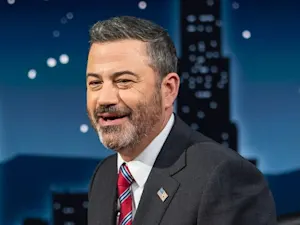
Musk Breaks Promise to Trump
Elon Musks listens to members of the Cabinet as they give updates during a meeting, Wednesday, April 30, 2025, in the Cabinet Room. Official photo by Molly Riley and courtesy of The White House. Public domain.
They posed as reformers. They promised trillions in savings. And for a few months, it looked like Elon Musk and President Donald Trump were an unstoppable force inside Washington. But now, their alliance is unraveling in spectacular fashion — with Trump reportedly dismissing Musk's ambitious initial $2 trillion government-cutting campaign as "b-------" behind closed doors, according to the Independent.
The initiative, known as the Department of Government Efficiency (DOGE), was supposed to be Musk's sleek, Silicon Valley-style solution to bloated federal bureaucracy. But after months of turmoil, mounting skepticism, and revised numbers, the much-heralded $2 trillion in promised cuts now looks more like a PR fantasy than fiscal reality.
A Partnership That Started Like a Power Move
When President Trump kicked off his second term in January, he handed Musk what many thought was the ultimate outsider's playbook — dismantle the administrative state, one cut at a time.
Musk, dubbed a "special government employee," got 130 days to prove himself and wasted no time making sweeping changes. He gutted federal agencies, laid off more than 100,000 workers, and slashed contracts across the board.
However, while the changes were dramatic, they allegedly weren't exactly what Trump had envisioned. Social Security and Medicare were deemed untouchable. Key legal challenges delayed or reversed cuts. Some of DOGE's reported "savings" have faced scrutiny, with analyses suggesting that certain figures may be based on optimistic projections or accounting oversights, according to NPR.
Musk's initial target was to cut at least $2 trillion in federal spending. That number was later revised down to $1 trillion and then again to $150 billion. But by the end of his tenure, Musk claimed DOGE had saved around $160 billion — still less than one-tenth of his original promise.
The 'Big Beautiful Bill' That Broke the Camel's Back
If the numbers weren't enough to spark Trump's fury, the politics of it all were.
Trump's flagship legislative package — the much-touted "big beautiful bill" — is a sprawling piece of legislation loaded with tax cuts, a no-tax-on-tips pledge, and boosts to defense and border security. It's also projected to add up to $5 trillion to the deficit over the next decade, The Times reported.
Musk, for his part, didn't mince words. In a CBS interview clip released last month, he said, "I was like, disappointed to see the massive spending bill, frankly, which increases the budget deficit, not just decrease it, and undermines the work that the DOGE team is doing," according to Business Insider.
It was the first major public rift between Musk and Trump — and it came as internal frustration in the White House hit a boiling point. According to The Wall Street Journal, Trump had already begun expressing "doubts" privately, questioning whether Musk's intentions were ever real, as reported by the Independent.
Tech Promises Meet Political Reality
Many feel that Musk's time in government has been nothing short of chaotic. He reportedly surprised officials with last-minute decisions, sent late-night texts to Cabinet members, and frequently bypassed Trump's chief of staff. Some DOGE actions, like surprise layoffs and massive data grabs, were discovered by other senior officials only after media reports broke the news.
Even Trump allies who once saw Musk as a disruptive force for good began to question his strategy — and his staying power.
By the end of April, Musk's once-constant presence in Washington had dwindled. Tesla investors, rattled by a drop in sales and Musk's divided focus, began urging him to step back from politics.
He agreed, telling CNBC, "My rough plan on the White House is to be there for a couple days every few weeks. And to be helpful where I can be helpful" according to Business Insider.
DOGE will continue without Musk, at least in name. The White House has said the cost-cutting agency will now be managed by Cabinet secretaries. But the big savings? Trump says they'll take time. "It may be six months, it may be almost a year in some cases. We're going through procedures, we're going through courts," he told reporters, according to The Times.
Gold Keys, Black Eyes, and a Messy Farewell
Musk's official exit from DOGE was theatrical, as expected. In a final Oval Office appearance, he accepted a ceremonial gold key from Trump while sporting a visible black eye — supposedly courtesy of a playful punch from his five-year-old son, X. "And it turns out even a five-year-old punching you in the face actually does hurt," Musk joked at the press conference, as reported by the Times.
But behind the smiles, the fracture could be sensed.
The two men may continue to share dinners, but the days of mutual praise could be over. Trump's inner circle has moved on. DOGE's budget axe may still swing, but with less force — and less credibility. And for all Musk's talk of efficiency, the numbers don't lie: spending is up and the deficit is growing.
Fallout Still Unfolding
The White House insists it's full steam ahead on cutting waste. But critics say the DOGE experiment shows the limits of bringing a CEO mentality to the federal government. Musk's bold declarations played well in headlines, but struggled under the weight of bureaucracy, legality, and politics.
References: Elon Musk says Trump's 'big beautiful bill' undermines DOGE | Even Trump started to doubt Musk and DOGE’s promise to cut $1 trillion, report claims: 'Was it bulls***?' | Elon Musk leaves the White House with a gold key and a black eye | What has DOGE done in Trump's first 100 days?






















